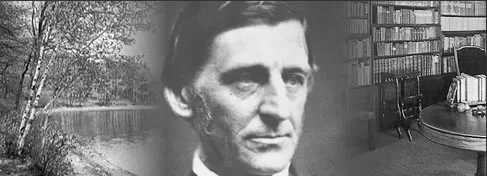Whoever considers the final cause of the world, will discern a multitude of
uses that result. They all admit of being thrown into one of the following
classes; Commodity; Beauty; Language; and Discipline.
Under the general name of Commodity, I rank all those advantages which our
senses owe to nature. This, of course, is a benefit which is temporary and
mediate, not ultimate, like its service to the soul. Yet although low, it is
perfect in its kind, and is the only use of nature which all men apprehend. The
misery of man appears like childish petulance, when we explore the steady and
prodigal provision that has been made for his support and delight on this green
ball which floats him through the heavens. What angels invented these splendid
ornaments, these rich conveniences, this ocean of air above, this ocean of water
beneath, this firmament of earth between? this zodiac of lights, this tent of
dropping clouds, this striped coat of climates, this fourfold year? Beasts,
fire, water, stones, and corn serve him. The field is at once his floor, his
work-yard, his play-ground, his garden, and his bed.
“More servants wait on man
Than he’ll take notice of.” ——
Nature, in its ministry to man, is not only the material, but is also the
process and the result. All the parts incessantly work into each other’s hands
for the profit of man. The wind sows the seed; the sun evaporates the sea; the
wind blows the vapor to the field; the ice, on the other side of the planet,
condenses rain on this; the rain feeds the plant; the plant feeds the animal;
and thus the endless circulations of the divine charity nourish man. The useful
arts are reproductions or new combinations by the wit of man, of the same
natural benefactors. He no longer waits for favoring gales, but by means of
steam, he realizes the fable of Aeolus’s bag, and carries the two and thirty
winds in the boiler of his boat. To diminish friction, he paves the road with
iron bars, and, mounting a coach with a ship-load of men, animals, and
merchandise behind him, he darts through the country, from town to town, like an
eagle or a swallow through the air. By the aggregate of these aids, how is the
face of the world changed, from the era of Noah to that of Napoleon! The private
poor man hath cities, ships, canals, bridges, built for him. He goes to the
post-office, and the human race run on his errands; to the book-shop, and the
human race read and write of all that happens, for him; to the court-house, and
nations repair his wrongs. He sets his house upon the road, and the human race
go forth every morning, and shovel out the snow, and cut a path for him.
But there is no need of specifying particulars in this class of uses. The
catalogue is endless, and the examples so obvious, that I shall leave them to
the reader’s reflection, with the general remark, that this mercenary benefit is
one which has respect to a farther good. A man is fed, not that he may be fed,
but that he may work.
